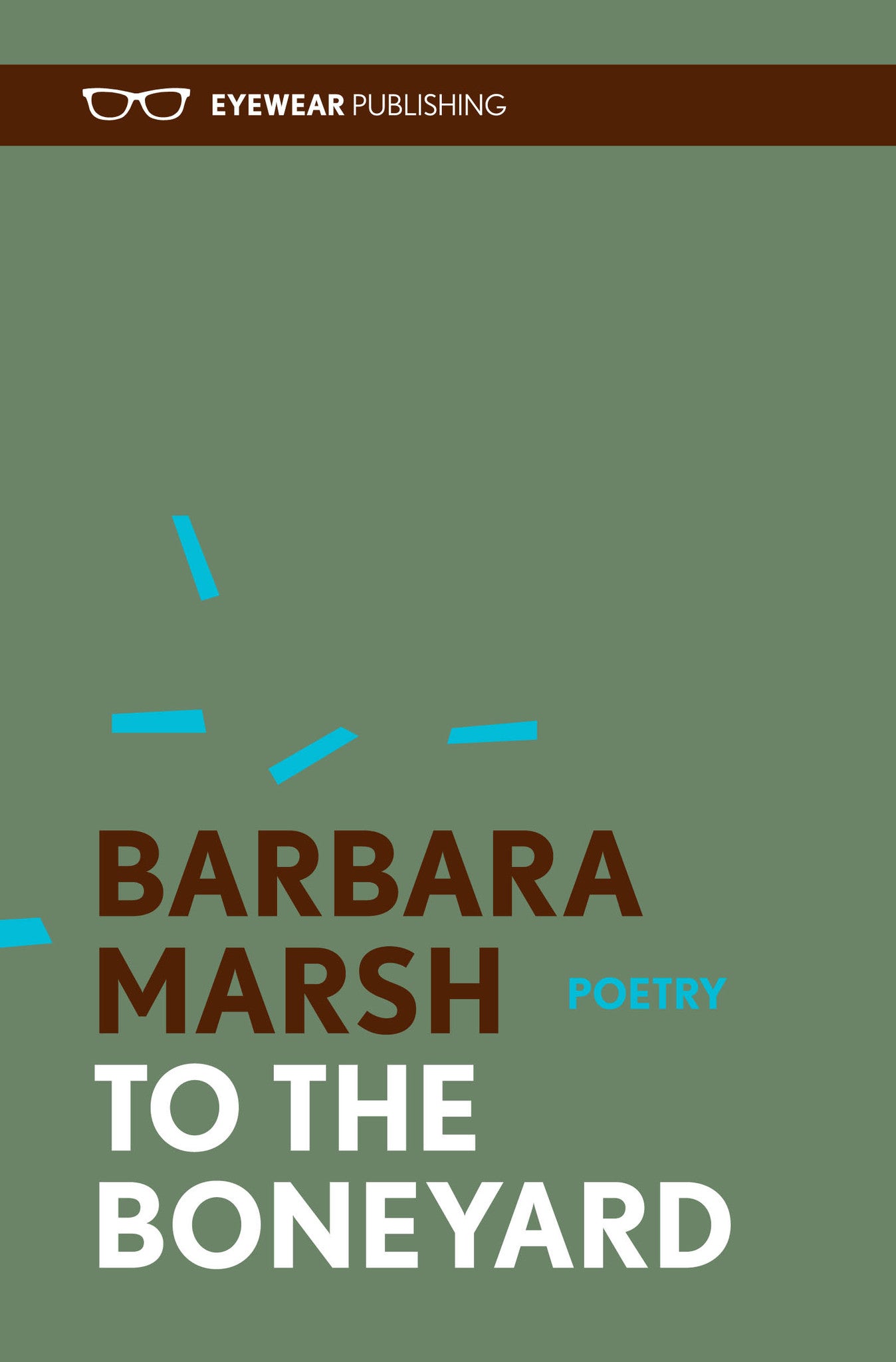Eyewear Publishing Ltd.
To The Boneyard
To The Boneyard
Couldn't load pickup availability
By Barbara Marsh
To The Boneyard is a first collection of poems where candour, humour and revelation meet in a hotel bar for cocktails. Here are encounters with the mythologies of love and loss, memories filtered through exile, a suite of epiphanies wrapped in brisk modernity.
Barbara Marsh was born in Rhode Island and spent her childhood traversing the USA, thanks to her father’s Naval career. After university, she lived in New York City, making inroads into the Village music scene as a singer-songwriter. She moved to London, where she co-formed music duo The Dear Janes, releasing three albums in Europe and the US. She lives and teaches in London.
Barbara Marsh is a wonderful writer. In what she chooses to notice, she has the eye of a painter. She is an image maker of great dexterity. But with that she brings to her poems the obfuscations and reversals, along with the highs, of what an inner life is. Her poems are provisional in way the world is, therefore they embody a genuine truth about how we are. I love her work. – John Stammers
Marsh publishes her debut at a later stage in the game [than Rory Waterman]. There’s no concern about the exact number of birthday cake candles – as she puts it in ‘Beginning ballet over forty’, ‘Quality / must count for something’ – but the breadth of experience she draws on as a relocated American with an early history as a touring singer-songwriter means her book offers emotional and actual encounters plotted along a greater stretch of individual biography than a younger poet can access. ‘I am not young’ begins the poem ‘I Am Young’. ‘A suite of epiphanies wrapped up in brisk modernity’ the blurb describes her work, but at her best the poems tender much more than the standard ‘memory plus moment of realisation’ formula. The opening poem ‘Greyhound’ is a bus-bound meditation on travel and home which leaves us ‘as the sun begins picking / prisms out of split rail-drifts’, with a closing figure of the bus ours alone to interpret. There’s no clumsy last-line dig telling us what to do with each epiphanic image. – Julia Bird, Poetry London (Summer 2014)
Pensacola Beach Bridge
I would cross it each new summer, a toll bridge
with a hill in the middle to let boats through,
the dolphin sign a carnival pointing the way.
I'd throw coins in the basket, hear the rattle and ding!
before the striped arm went up.
The old bridge sat alongside, its draw removed.
Fishermen lined its rails, gulls dived for scraps.
Everything eased, like my brown legs into sand.
Hard bodies, new drugs, I crossed over to them
with the songs on the radio – Take Me to the River,
What a Fool Believes, How Do I Survive.
Last September, a storm with a boy’s name
destroyed it. Photographs show great chunks gnashed away
en route to the remnants of Oriole Beach, Palafox Street.
The birds calling over Pensacola Sound don’t know
how the seasons rush, single days like the fish
they swoop down upon.
Perhaps there’s no bridge to anywhere we’ve been.
All those stars we see that no longer exist.
In the blaze of the September sun, the glints
on the still water under what remains.


